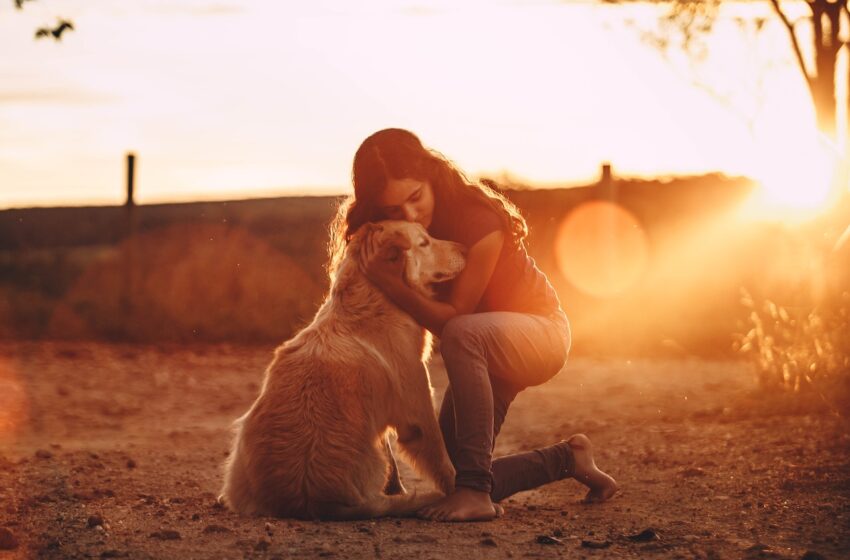Power of Pet Companionship: How Do They Provide Comfort and Support

Mypetpulse.com – Pet companionship
Introduction: The Power of Pet Companionship
Pets have been an integral part of human society for centuries, providing companionship, loyalty, and unconditional love to their owners. From wagging tails to purring, pets have a unique way of touching our hearts and becoming cherished members of our families. Beyond their physical presence, pets also play a significant role in our emotional well-being, providing comfort and support during both happy and challenging times. Whether it’s a loyal dog, a playful cat, or a charming rabbit, the presence of a pet can bring immeasurable joy, comfort, and love into our lives. Beyond the adorable antics and cuddles, pet companionship holds deep importance, benefiting both our physical and emotional well-being in countless ways.
Importance of Pet Companionship:
- Unconditional Love and Support: Pets have an uncanny ability to provide unconditional love, offering solace and support during challenging times. The mere presence of a loyal pet can brighten a person’s day and alleviate feelings of loneliness or stress.
- Mental Health Benefits: Numerous studies have shown that pet companionship has positive effects on mental health. Interacting with pets can reduce anxiety, depression, and feelings of isolation, promoting overall well-being and emotional stability.
- Physical Health Advantages: Pet owners often experience improved physical health due to regular walks, playtime, and outdoor activities with their pets. The increased physical activity contributes to lower blood pressure, reduced risk of heart disease, and a healthier lifestyle.
- Enhanced Social Interaction: Pets act as social catalysts, fostering connections between pet owners and other animal lovers. Walking a dog in the neighborhood or visiting pet-friendly parks often leads to conversations and friendships among fellow pet enthusiasts.
- Stress Relief: The simple act of petting a dog or cat has been shown to release endorphins and reduce stress levels. Spending time with pets provides a tranquil and calming environment, helping individuals unwind after a long day.
- Teaching Empathy and Responsibility: Pet ownership instills a sense of empathy and responsibility, especially in children. Caring for an animal teaches important life skills such as compassion, patience, and the significance of nurturing others.
The Science of the Bond Between Pets and Owners
The emotional bond between pets and owners is not just a figment of our imagination; it is supported by scientific research. Studies have shown that the bond between pets and their owners is rooted in a complex interplay of biological, psychological, and social factors. One key factor is the release of oxytocin, often referred to as the “love hormone,” which is associated with social bonding and attachment. When we interact with our pets, our brains release oxytocin, creating a positive feedback loop that strengthens the bond between us and our furry friends.

Additionally, pets can also help reduce stress and anxiety by lowering cortisol levels, a hormone associated with stress. Research has shown that interactions with pets can lead to lower blood pressure, reduced heart rate, and increased levels of serotonin and dopamine, neurotransmitters associated with happiness and well-being. These physiological responses contribute to the emotional bond we form with our pets and the positive impact they have on our mental health.
The Emotional Benefits of Pet Ownership
Beyond the biological and physiological aspects, pet ownership also brings a wealth of emotional benefits. Pets provide us with unwavering companionship, offering a sense of comfort and security. They are always there to greet us with wagging tails or soft purrs, providing us with a sense of unconditional love and acceptance, regardless of the challenges we may be facing. This emotional support can be particularly valuable during difficult times, such as during periods of stress, grief, or loneliness.
Understanding Common Pet Behavior Problems and How to Address Them
Pets also offer a sense of purpose and responsibility. Taking care of a pet requires time, effort, and commitment, which can help improve our self-esteem and sense of accomplishment. Caring for a pet gives us a sense of purpose and provides a routine and structure to our lives, which can be especially beneficial for those struggling with mental health issues, such as depression or anxiety.
Furthermore, pets can also improve our overall mood and well-being. Spending time with our pets can bring joy, laughter, and playfulness into our lives, helping to reduce stress and promote relaxation. Pets can also provide a sense of humor, as they often exhibit quirky behaviors and antics that bring a smile to our faces. Additionally, pets can provide a sense of companionship, especially for those who may live alone or have limited social interactions, helping to alleviate feelings of loneliness and isolation.

How Pets Provide Comfort During Difficult Times
Pets have an uncanny ability to provide comfort and solace during challenging times. Whether it’s a breakup, loss of a loved one, or a difficult day at work, pets are there to offer a shoulder to lean on. They provide a sense of comfort and support, often simply by being present and offering a listening ear, or in the case of pets, a listening paw.
For example, during the COVID-19 pandemic, many people experienced heightened levels of stress and anxiety due to social isolation, financial difficulties, and uncertainty about the future. In response, animal shelters saw a surge in adoptions, as people sought out the companionship and emotional support of pets during these challenging times.
Furthermore, pets can also provide comfort and support to those going through health challenges, such as undergoing cancer treatments or recovering from surgery. Animal-assisted therapy programs have been shown to help reduce stress, anxiety, and depression in patients, improving their overall quality of life.
Pets as Social Connectors
Pets can also serve as social connectors, bringing people together and fostering a sense of community. For example, dog parks and pet-friendly events provide opportunities for pet owners to socialize and connect with others who share their love of animals. Pets can also serve as conversation starters, making it easier for people to strike up a conversation with others and form new friendships.
Furthermore, pets can also play a role in strengthening existing relationships, such as between couples or within families. Caring for a pet requires cooperation and teamwork, which can help strengthen the bonds between family members or couples.

Unique Bond Between Children and Pets
The emotional bond between pets and owners is particularly strong when it comes to children and pets.
Pets can provide a sense of comfort and support to children, helping them navigate the ups and downs of childhood. Pets can also serve as a source of play and imagination, providing endless hours of fun and entertainment.
Furthermore, research has shown that growing up with pets can have long-term benefits for children. Children who grow up with pets have been shown to have improved social skills, higher levels of empathy, and better self-esteem. Pets can also provide a sense of security and stability for children, particularly those who may be experiencing challenges at home or in their personal lives.
Conclusion: The Enduring Emotional Bond Between Pets and Owners
Pet companionship is a precious gift that enriches our lives in immeasurable ways. As the bond between pets and their owners deepens, the love, joy, and comfort shared become an integral part of our daily lives. The reciprocal affection and emotional connection found in pet companionship remind us of the profound impact animals have on our well-being. It is a relationship that goes beyond words, forging a heartwarming connection between humans and their loyal four-legged friends. Embrace the gift of pet companionship, and witness the transformative power of unconditional love and joy that only a furry companion can bring.





2 Comments
[…] Power of Pet Companionship: How Do They Provide Comfort and Support […]
**cellufend**
cellufend is a natural supplement developed to support balanced blood sugar levels through a blend of botanical extracts and essential nutrients.